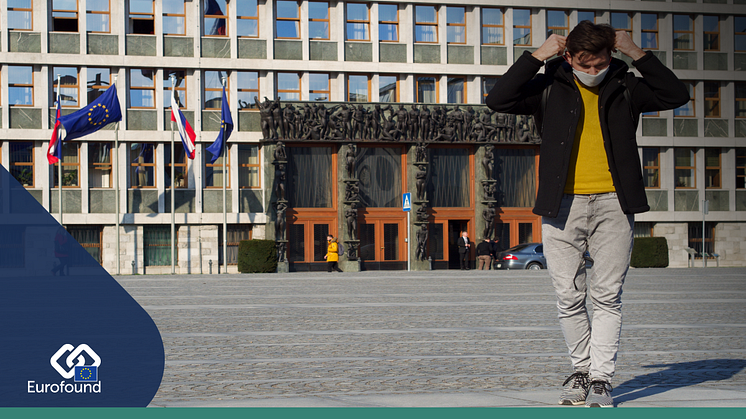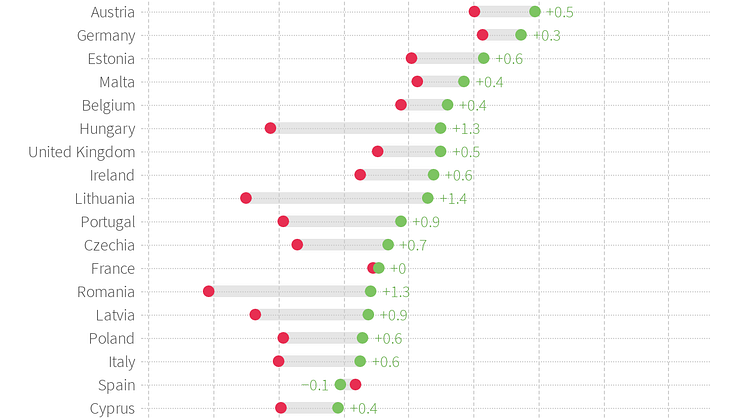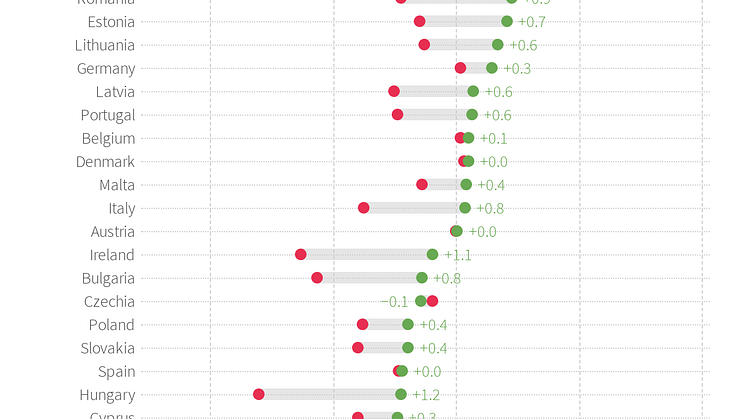
News -
Levels of trust in institutions could be key in combatting COVID-19
Tackling the Coronavirus (COVID-19) has required unprecedented responses from national and local governments, the European institutions, financial institutions and non-political institutions such as the legal system and the police. In some Member States this has involved enforcing restriction of movement, and State intervention in private health and care services. As institutions rely heavily on the trust and support of the general public for these measures to be truly effective, the increasing levels of trust in Europe prior to the crisis is good news, albeit with a large variance between Member States in terms of trust in different institutions.
Eurofound's analysis of the 2016 European Quality of Life Survey shows that in many countries decline in trust in institutions was a temporary phenomenon during the recession that followed the 2008 financial crisis. In general, trust in national institutions had fully recovered for most of the EU by 2016; however, in a number of countries, most notably in southern Europe, it had not returned to pre-financial crisis levels. Lower levels of trust also still characterise a number of eastern European countries.
The COVID-19 crisis has emphasised the importance of trust in the media, and the role of reliable facts-based journalism in combatting the spread of fake news. Eurofound's research shows that levels of trust in the media are highest in Nordic, Baltic and western Member States, and lowest in southern and eastern Member States – although there are exceptions. In general, levels of trust in the media have been less volatile than trust in national institutions. Nevertheless, Eurofound has observed fluctuations in levels of trust in the media between 2007 and 2016 across the EU.
Speaking about the research, Juan Menéndez-Valdés, Eurofound Executive Director, said "Trust in public institutions is important at the best of times, and is a prerequisite for implementing necessary policy reform. Maintaining trust in institutions during these challenging times will be vital in ensuring a coordinated, comprehensive and effective response to the COVID-19 pandemic. This should be done through broad-based cooperation and active engagement with citizens throughout Europe, with measures implemented on the basis of consensus."


Read more:
- Report: Societal change and trust in institutions
- Topic page: COVID-19
- Blog: Eurofound's Executive Director on the Coronavirus crisis
Get the data:
- Datawrapper: Change in trust in national institutions
- Datawrapper: Change in trust in the media
- Eurofound: Supplementary analysis – Societal change and trust in institutions




